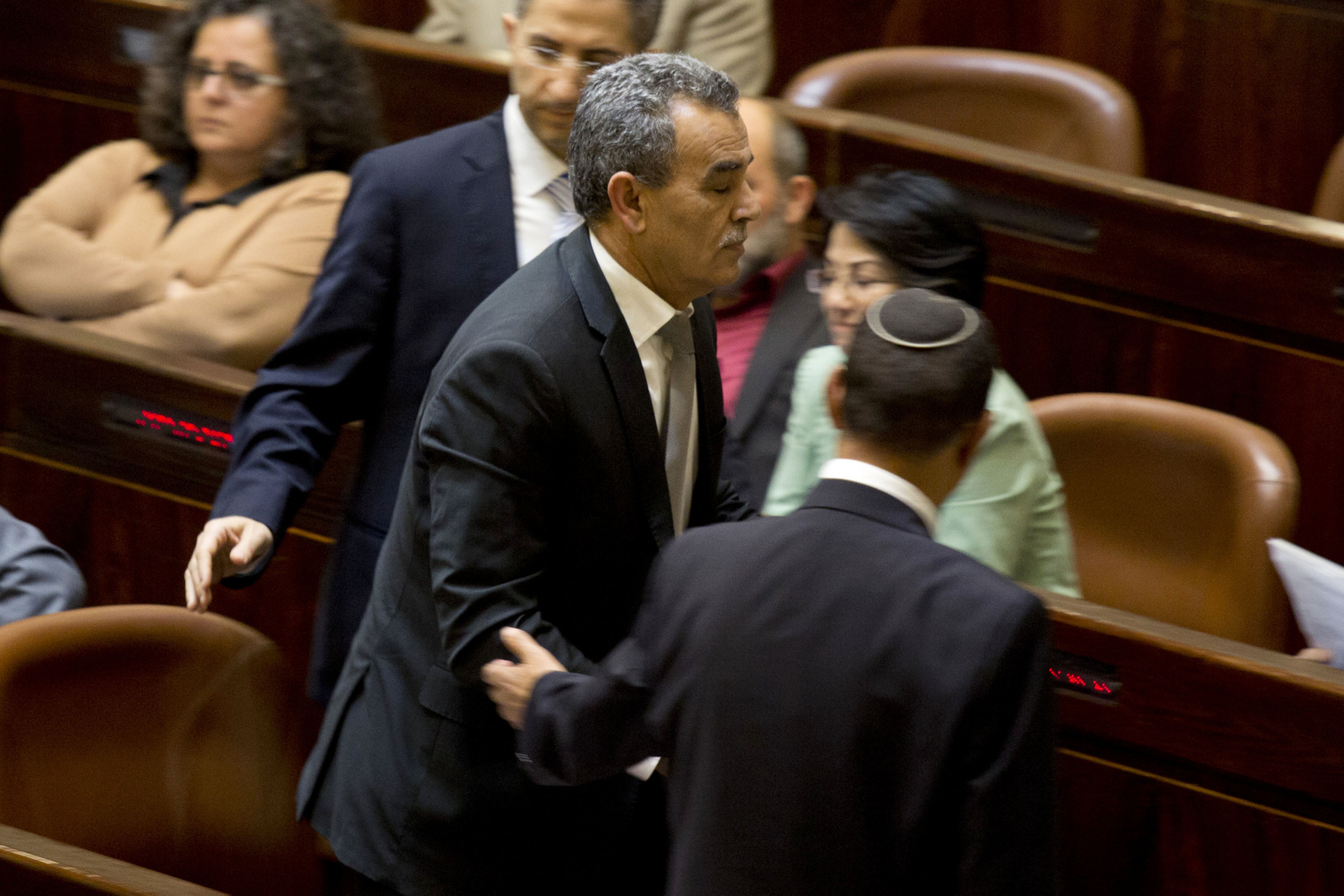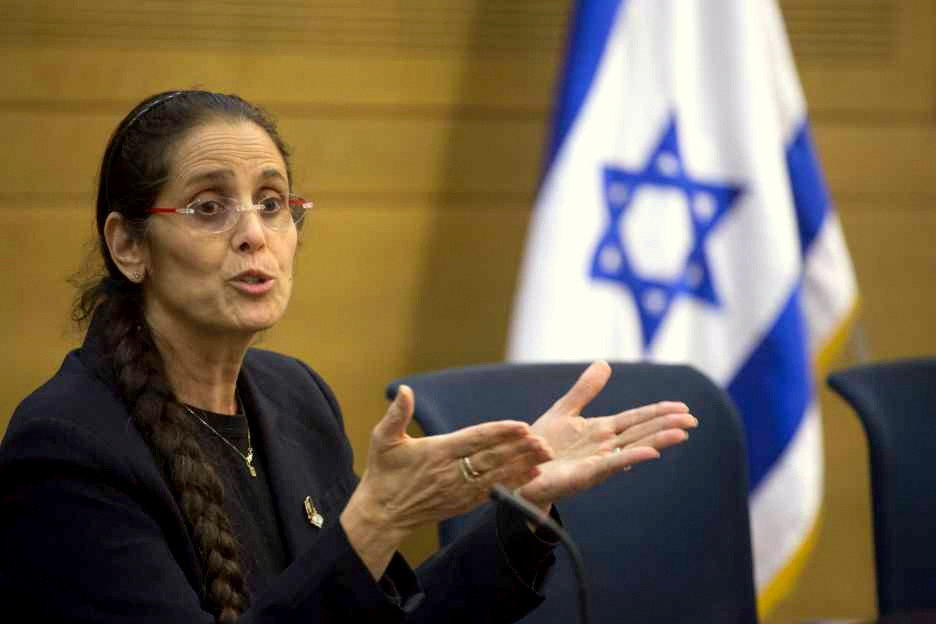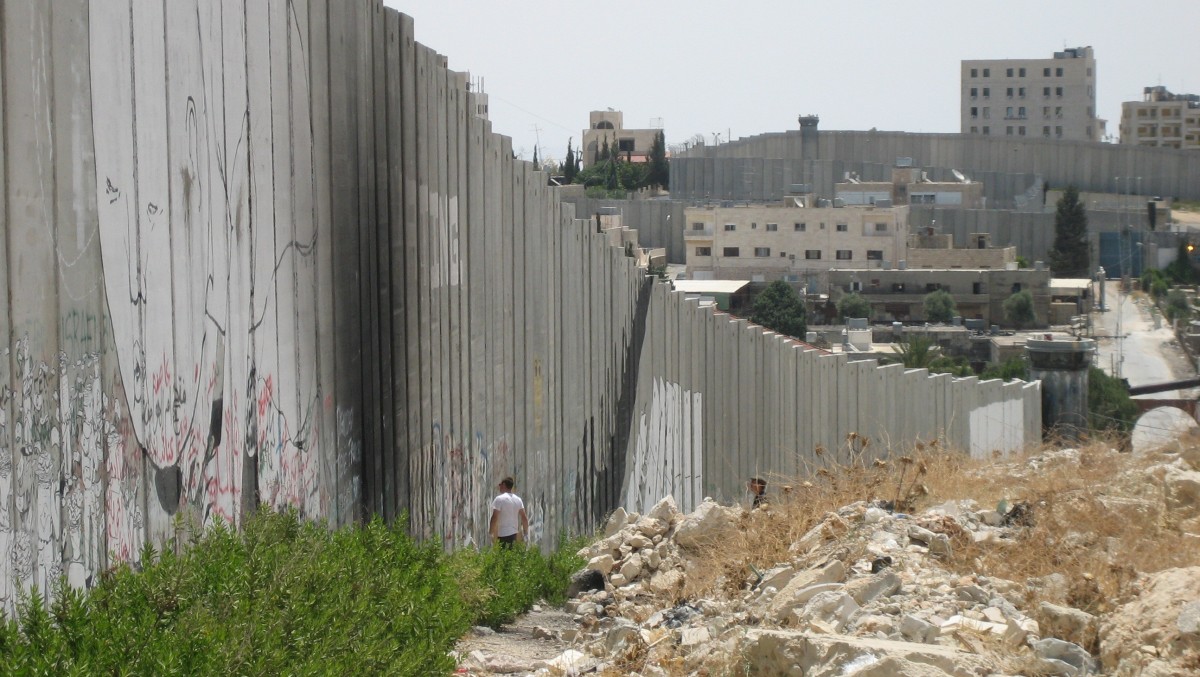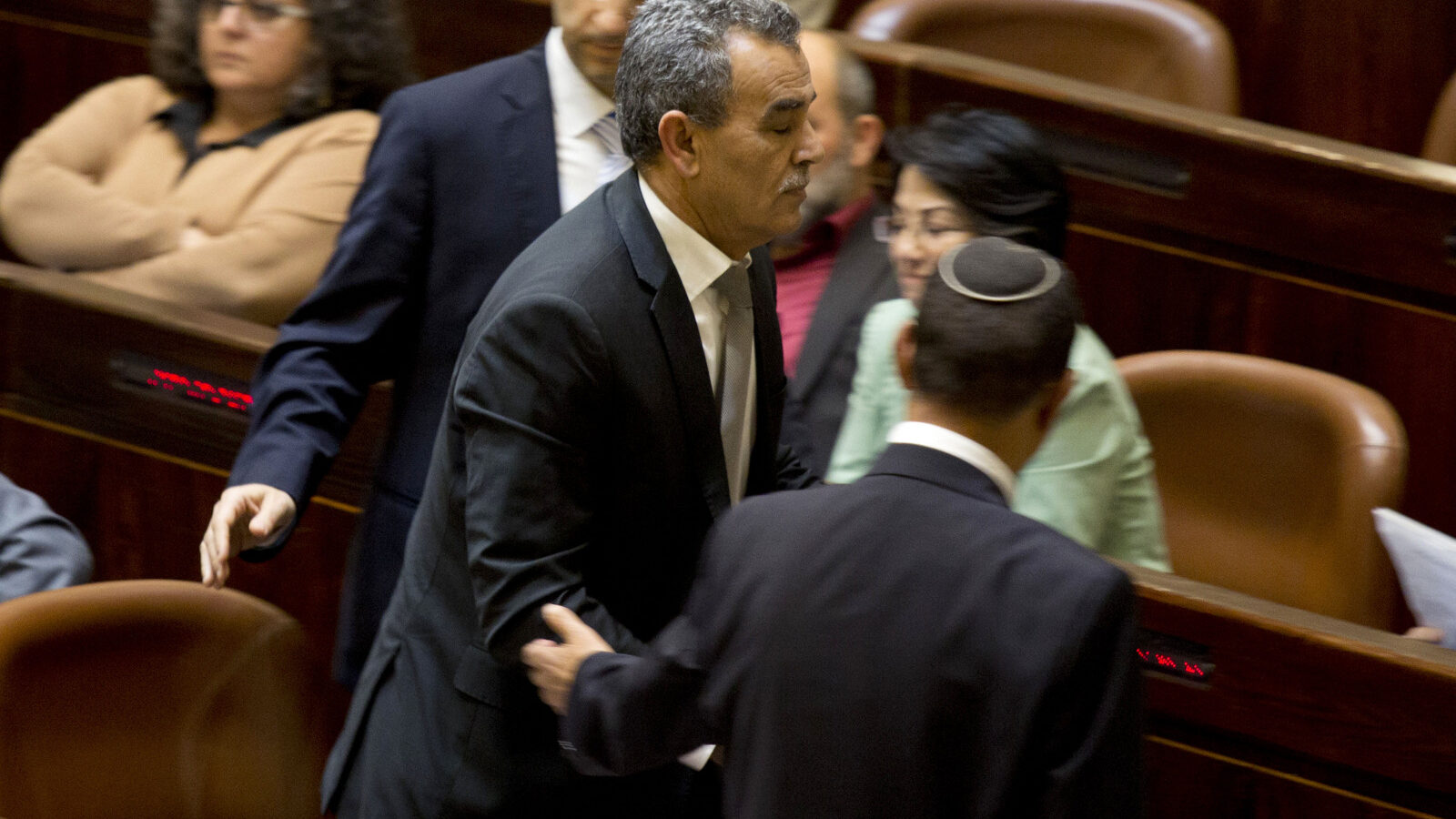
Seattle — (ANALYSIS) The Israeli Knesset ethics committee voted last week to suspend three Palestinian Knesset members from parliamentary activity for periods ranging from two to four months for intervening on behalf of the families of Palestinians from East Jerusalem who died in attacks on Israelis during the current Intifada.
The MKs, Haneen Zoabi, Bassel Ghattas and Jamal Zahalka, were negotiating with the Israeli government, which had refused to return the bodies — including the bodies of two 15-year-old boys — unless the families agreed not to combine the funerals with political protest.
Israeli officials demanded that the funerals take place at night with no one other than immediate family members present. They also demanded the families pay bonds ranging from $750 to $1,500, ensuring they honored the government demands. For a poor Palestinian family whose home is also likely to have been destroyed as punishment, this is a king’s ransom. Further, being forced to post bond is akin to paying a ransom for redeeming the bodies of the dead.
Though most of the families agreed to these conditions, the government inexplicably still has not returned the bodies, some of which have been held for as long as four months.
As part of the negotiation process, Zoabi, Ghattas and Zahalka visited the lawyers and representatives of the grieving families and reported to them on the progress they had made with Gilad Erdan, Israel’s minister of information and public security, strategic affairs. These visits to alleged “terrorist families” is what stirred the hornet’s nest. Israel’s media falsely reported that the legislators met directly with the terror families. Had such a meeting occurred it might be easier for the State to mount a criminal prosecution against the MKs.
When Palestinians are killed by the Israeli Defense Forces on the West Bank, the IDF responds more cooperatively and repatriates bodies to the families for burial, without placing such burdens on them. But these victims were East Jerusalem residents killed there, so they are under Israeli civil jurisdiction. Israeli police, known for their brutality toward Palestinians, are in no mood for cooperation.
This violates both Muslim and Jewish religious practice, which demands that bodies be buried immediately. Any delay is considered an insult to the dead and the surviving family members. Without question, this refusal to turn over the bodies to the families foments deeper resentment against Israeli security forces among the Palestinian community.
Israeli right-wing politicians and right-wing media pounced on this event as an opportunity to smear the MKs, claiming that they were meeting with “terrorists” or terrorist families. For his part, Prime Minister Benjamin Netanyahu described them as “building walls of hate.” Israeli media reports refused to acknowledge the legitimate role the legislators were playing in representing their Palestinian constituency.
Israel has for decades negotiated with neighboring states for the return of the bodies of Israeli soldiers and citizens which are held in foreign lands. This negotiation process is accepted and respected, and the negotiators are seen as doing good on behalf of the bereaved families. However, when an Israeli Palestinian official does the same, it’s seen as treason.
Israeli justice minister met with family of accused Jewish terrorist
Further exposing the hypocrisy of the punitive measure is Justice Minister Ayelet Shaked’s meeting with the family of Israel Keller, the Israeli-American accused of murdering a Palestinian family of three in an arson attack last year. After the meeting, Shaked promised to exert pressure to ensure the terror suspect wasn’t mistreated during interrogations by the Shabak, Israel’s domestic spy agency, also known as the Shin Bet. This is a service she’s never offered to any Palestinian security detainees, who are routinely tortured by the agency.

972 Magazine pointed out that after being released from prison, convicted Israeli terrorists become respected leaders in both the settler community and broader Israeli society. In fact, the Lehi assassin of Count Bernadotte, Yehoshua Cohen, eventually became former Prime Minister David Ben Gurion’s confidant and chief of his security team.
The suspended Palestinian MKs have little recourse. They can appeal to the Knesset plenum to cancel the suspension. When that fails, as it surely will (all the parties in the Knesset, including the “left” or liberal parties, have denounced the MKs’ visits to the Palestinian families), they may then appeal to the supreme court. However, this body has grown increasingly right wing as it has become populated by Likud loyalists and settlers. There is by no means any guarantee that these Israeli legislators will be returned to their posts.
During their suspension, they may still vote in the Knesset on legislation. However, they may not participate in Knesset committees, which is where much of the work is done in the Israeli legislature.
Palestinian party caught between a rock and a hard place
While the Joint List, the largely Palestinian party in the Knesset, protested the suspension of their members, it did so quite mildly. Given the increasing hostility against the Palestinian minority and the increasingly apartheid nature of the state of Israel, it’s surprising that the only Palestinian political party in the Knesset would not take stronger action. In other democracies, if such an insult was committed against a minority party, its members might be expected to boycott the entire legislative process. If the Joint List did this, it would put enormous pressure on Prime Minister Netanyahu to rescind the suspensions. If he refused to do so, he would risk exposing the fig leaf of Israeli democracy for what it really is. He would not dare risk permitting the world to see Israel’s legislature as a body by and for Jews, a body in which Palestinians are reluctantly tolerated.
Israel’s Palestinian community does a delicate dance regarding its role within Israeli society. It seeks equality but understands, or tacitly accepts, that it is an unwanted minority. It never crosses red lines. It never, or at least hardly ever, engages in violence. While it may see itself as standing in solidarity with Palestinians in the West Bank, it is careful not to push this identity too far. It seems they fear a stance that is too radical will sever what little relationship or trust there is with the Jewish majority. There is often a “go along to get along” quality to the Israeli Palestinian approach to the majority.
The suspensions offer further evidence that Israel is an apartheid state in which Jews have superior rights and Palestinians inferior. In the Knesset, virtually every Palestinian lawmaker is investigated at one time or another by the police for alleged criminal acts. That is how the former Palestinian legislative leader, Azmi Bishara, was forced into exile several years ago, where he remains to this day.
Netanyahu is considering a new law that would permit the Knesset to ban an MK entirely when his or her behavior is deemed “inappropriate.” The criteria for what is inappropriate of course is not specified. But anyone who knows anything about Israeli politics understands that the target of this legislation is the Palestinian minority. There has been and will continue to be an ongoing attempt to muzzle Palestinians, to eviscerate what little political power they do have, and to expel them from the Knesset. The only thing holding back this project is the opprobrium that would ensue from the international community.

As part of the three-ring circus atmosphere surrounding the debate over the new round of anti-democratic legislation, Likud solon Anat Berko put forth the astonishing argument that Palestine cannot exist because there is no “P” in Arabic. Apparently, the fact that the word is spelled and pronounced with an “F” (Falastin) in Arabic seems to have escaped her. It’s worth noting, too, that according to her logic, Israeli Jews do not exist either, since there is no letter “J” in Hebrew.
Bibi goes ‘full Trump’
In a related development, Prime Minister Netanyahu took a tour of the West Bank and inspected a portion of the fence that separates Jordan from Israel. During his visit, Netanyahu projected that Israel would be entirely encircled with uninterrupted fencing by the end of his rule. Breitbart, a website that’s not known as an enemy of the Likud, called this “going the full Trump.” So, despite the fact that the vaunted Separation Wall between Israel and the West Bank was supposed to prevent terror attacks and failed to do so, Netanyahu — like the “Big Fool” of the Pete Seeger song, “Waist Deep in the Big Muddy” — “will push on.”
He argued during his visit that a fenced-in Israel was necessary because the country is surrounded by hostile Arab states, which he called “wild beasts” or “beasts of prey,” depending on the translator. With typical imprecision, The New York Times translated the phrase he used as “predator,” a far weaker term.

This rhetoric was nothing new: Former Prime Minister Ehud Barak spoke of Israel as a “villa in the jungle.” The sheer egotism, insularity and racism of Israel’s leaders never ceases to astonish. And this quality is one of the key components of the rejectionism that has characterized Israeli policy for decades.
If there are “wild beasts,” as Netanyahu claims, they are as much within Israel as without. Anyone following the racist, anti-democratic legislation proposed in the Knesset, or reading about teenage Palestinians being murdered for throwing a rock at a military patrol, or seeing headlines in which ministers use hate-filled rhetoric against Palestinians, African refugees and even Israeli Jewish NGOs, can see there is a beast within Israeli Jewish society.
Further, no fence can protect against an internal threat from Palestinians, both citizens and the occupied, who resist their permanent subjugation. The attacks of the current Intifada cannot be restrained by any fence. They can only be restrained by meeting Palestinian demands for freedom, justice and equality.


